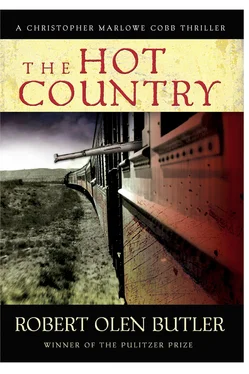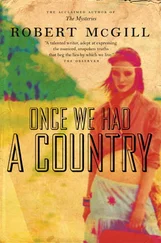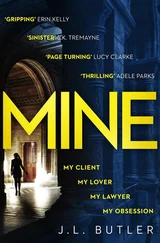“You apparently tried to hide your tracks, but you are a sloppy man, Herr Cobb, and I have a keen eye.”
“Your clothes were quite dull, as it turned out,” I said.
I saw a flicker in him: He was not sure I’d found the documents.
“And a clothes brush?” I said. “Do you understand the scorn Pancho Villa will have for you if he finds out?”
“So will that be your big story, Herr Cobb? You will expose the Germans for keeping their clothes brushed?”
“I would only care about the one reader,” I said. A mistake, however. There was another flicker in him at what I’d just admitted: I understood he had intentions with Villa that I needed to somehow thwart.
“It is a shame he cannot read,” Mensinger said.
“He’ll get the message,” I said.
“But he will forgive me, Herr Cobb, when he knows that you were a sneak thief, and an incompetent one. And when he knows I have bravely faced your pistol with a sword and defended myself.”
I understood at once: He would put my pistol in my hand and discharge it after I was dead.
But he still had not drawn. Arrogant ass.
I slowly rose, pushing the chair out from behind me with my foot. I turned to face him. It was how he wanted me. It was how I wanted to be, given Desperate Plan Number Two.
I had not moved away from the desk to face him. My right hand remained at the side of the typewriter, hidden from his sight. I worked my fingertips underneath the base of its frame. Desperate Plan Number Two featured Corona Portable Number Three.
He smiled. And he drew. He was fast and the blade was coming out quick and I grasped the Corona tight from the base and it was coming up quick too and his sword was out and angling back and he was committed to a thrust and he did not imagine anything could intervene and the Corona was heavy, very heavy, slower than I expected, and I strained hard and it rose faster and the sword started forward and Corona was up and it was before me perpendicular to the floor showing its bottom to Mensinger and I grabbed its left side and braced my arms straight out even as the sword clanged in and sword and typewriter together jumped toward me and I tensed my arms and they flexed as Corona came at me but I steeled my arms and the typewriter slowed even as the sword flashed through the type bars and my arms braced and the sword emerged and the tip plunged toward me, a foot away, nearer, and my arms strained harder against the thrust and they held now, my arms held against the push and the tip of the sword stopped not six inches from me.
And we were suspended, Mensinger and I, we were a tableau for the briefest of moments and I pushed back, with arms and legs I pushed him back, the sword wedged still in my dear Corona, whose life I feared for even as I drove Mensinger back and I had to hold fast at the base of Corona because Mensinger was pulling that way now, trying to get his sword out and he did. The tip vanished from between the key bars and I knew his jerking momentum gave me just a moment, I could see his arm flying back even as he stopped and braced to begin another thrust but I continued toward him a strong step as I flipped Corona from its exposed bottom to its strong wide back and I was inside his striking distance and he started to step back too but I strode and I raised Corona to Mensinger’s face level to his forehead level and I thrust it hard forward. We were moving together in the same direction and I was not as close as I wished but the thump in the center of his forehead was loud.
And Corona went “ding.”
And I found Corona in empty air and my feet were tangling and I stumbled and he was beneath me and I sidestepped and stumbled again and I made a conscious step away, into empty floor, I planted one foot hard and firm and then the other, and I stopped.
I breathed. I thought I had not been breathing much. I turned.
Mensinger was on his back. Out cold. John L. Sullivaned. His arms sprawled wide, his sword still in his hand, though the fingers had gone slack. He would have a serious headache for his big meeting with Pancho Villa.
And I knew it was time to leave.
Now.
“Walk with me,” I said to Slim. He knew from my voice that he shouldn’t ask why. It felt good to say three words in English at the moment.
He took a last pull from a bottle of pulque, which had to be about eighty degrees at the coolest. I couldn’t imagine drinking the stuff in the desert. But Slim also fought wars for money. And it also struck me about this moment that I was having thoughts like these. Which led me to think: part of me has already gotten on a horse and ridden far away and written a news story and found a telegraph operator and has left my participatory days far behind me.
Slim rose and we both nodded to Hernando and the rest of the boys, and Slim fell in beside me as I headed back to the postal car.
“I need your help,” I said.
“You know you got it,” he said.
“I have to ride out of here tonight.”
“That was fast. Your story done?”
“I had a breakthrough.”
“What do you need from me?”
“Help me retrieve my horse.”
“I’ll find the boy.”
“I’ve got a map and compass,” I said. “It looks like Laredo.”
“Okay. Probably best, if the U. S. of A. is your intention. Take you three days if you don’t want to kill your animal.”
“Much trouble along the way, you figure?”
“I’ll get you a Mauser just in case. But no. Not if you stay at least twenty miles away from the railway till you get to the Salado River. You could lead your horse over the train bridge there, and you’re good the rest of the way to the border.”
We were approaching the postal car.
“I’ll get my saddlebags,” I said.
“Horse and rifle,” he said. And as an afterthought: “And a phial of iodine and clean bandages.” He headed off up the tracks.
I stepped into the car and Mensinger was still out cold. I’d checked his pulse after quickly pulling my things together and before I’d gone after Slim. The pulse had seemed fine.
He was drooling a bit now. His fingers were starting to twitch. There was some incipient movement under and around the closed eyelids. He had a knot in the center of his forehead, as if all his secret plans were being drawn into the open.
I put the bags over my shoulder and sat for a moment on the chair. I needed to wait. I was ready to give Mensinger another tap if he suddenly popped back awake. But before I had to do that, I heard Slim on the steps. I rose and I moved toward the door and I stopped when Slim stopped, framed in the door, a Mauser in his hand and a bandolera draped over his arm, and his face had an expression as close to true wondering surprise as Tallahassee Slim’s face had probably ever come. He was staring at Mensinger.
“My breakthrough,” I said.
Slim looked at me with every bit as much admiration as he’d showed when I saved his life.
I said, “If he has his way, you’ll need to leave Pancho’s employ. He’d like you all to take back the Alamo.”
Slim shook his head, once, like didn’t that beat all. And he thrust the Mauser straight out into the air between us. “Go tell ’em,” he said.
I woke as if I’d just fallen asleep and begun to dream. I floated on a felt-stuffed mattress, and above me a four-blade ceiling fan spun like the sleep-slowed propeller of an aeroplane approaching me, but I just drifted before it, unfazed, serene, and since I was softly held now, I was free to lie once again on a bed of stone and it was soft there too, and this dream veered, as dreams sometimes do, into a thing so deeply wished for that only in this way can it happen and it feels real but you know even as you go through the motions of it that it is impossible. Luisa returned to me now like this. She fit herself upon me and rose above me, and beyond her the aeroplane slowly rushed at us both, but we were safe, joined like this we were safe, and then she was gone and I was in the Hamilton Hotel on the corner of Convent and Matamoros in Laredo, Texas, but as in a dream you can know where you really are and still dream on, I saw my mother and she was singing in a brothel in New Orleans and I sat up in the bed and put my feet on the floor.
Читать дальше












